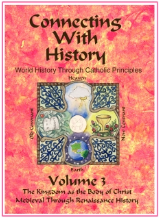"'Education is the Science of Relations'; that is, that a child has natural relations with a vast number of things and thoughts: so we train him upon physical exercises, nature lore, handicrafts, science and art, and upon many living books, for we know that our business is not to teach him all about anything, but to help him to make valid as many as may be of––
'Those first-born affinities,
That fit our new existence to existing things.'"
Charlotte Mason, A Philosophy of Education
with a quote from The Prelude by William Wordsworth

Paula's house has some expanses of rocky areas, perfect to camouflage killdeer eggs. We have not gone hunting for the nest of the one that was running along her drive way that I was able to photograph so nicely. I was hoping to get a picture of the orange feathers hidden at the base of the tail under the wings, but not this time.
To protect their nests, killdeers will run away from it hoping that the intruder will chase them instead of finding the nest. This guy was certainly running away from the rocky areas so perhaps there is a nest in the yard somewhere. We'll have to be careful when we are out there for our
co-op cloud study, or when the kids are playing.
I am still hoping to capture the image of a red wing blackbird that also likes to visit her yard.

 Sylvia posted some great food for though on her blog Homeschooling in a Bilingual Home with Mastery versus Spiral. She discussed one educator's call for math mastery and yet wondered about MEP's spiral design. These were my thoughts on the subject:
Interesting post, Sylvia. I suggest that given the definitions as presented, MEP is a program of mastery yet is not a Mastery Program.
Sylvia posted some great food for though on her blog Homeschooling in a Bilingual Home with Mastery versus Spiral. She discussed one educator's call for math mastery and yet wondered about MEP's spiral design. These were my thoughts on the subject:
Interesting post, Sylvia. I suggest that given the definitions as presented, MEP is a program of mastery yet is not a Mastery Program.
Reading Liping Ma's book will help people understand what I mean. Ma makes the case, IMHO, that US teachers teach mastery of an algorithm, or the mechanics of doing problems without mastery of the mathematical concepts, while teachers in Asia have a better understanding of mathematical concepts and teach them to their students. IMHO, this was achieved by mastering concepts on a low level (1 or 2 digit numbers, using 10s, etc.) before advancing kids to greater complexity, like multiplying 37946 x 897.
My oldest is in Y4 of MEP; we switched from Math U See last year. He has not done any large or complex multiplications. He continues to master the regrouping and distributive property, though he does not call them that, by breaking larger numbers into smaller numbers and then multiplying or dividing those. He learned division through place value and no longer gets confused by "bringing down the next number." He can multiply and divide large numbers because he figured it out based on his mastery of small numbers. That is the genius of MEP.
Compare this to Math U See. By the end of Gamma my son was multiplying these large numbers because he learned mechanically how to do it, but he didn't really understand what he was doing or why. Englemann calls that Mastery. I call that Mastery of the Algorithms, while I call MEP Mastery of the Concepts. This difference is why Liping Ma got the results she did.
MEP is a true spiral program because it does not put forth a concept to cover until mastery and then move on to the next concept. But there are, what shall I call them, pseudo-spiral programs that are basically mastery programs in that they move from topic-to-topic only do so in shorter bursts. In fact, I think what we call spiral programs are really these mini-mastery programs, and are like Englemann's floating stairs. I can see why Miss Mason did not care for them. MEP then is something different entirely.
Sylvia followed up with Mastery versus Spiral (Part II)
This got me thinking not only about MEP but about education in general. Regarding MEP:
My first comment is regarding whether MEP is a spiral program or a mastery program. My answer is: both! I currently have children in Y1, Y3, and Y4; the older two have each completed the entire previous year. What MEP does is it introduce a big subject, like multiplication and division (started together) at its simplest level, 1 digit numbers. Once that is shown and kids are doing it, MEP then presents a wide variety of different types of math concepts to which multiplication and division is used--tables, graphs, word problems, etc. In doing so, the program also slowly advances the difficulty of the multiplication and division, but never beyond small, easy-to-grasp problems.
I blogged about this here.
By this construct, MEP is teaching mastery of multiplication and division--from early in Y3 to where we are so far in year 4. It did the same thing with addition and subtraction in Y1 through the early part of Y2. Yet MEP has a spiral construct in all the other concepts to which basic arithmetic is applied. Geometry, measurement, and fractions are all scattered throughout Y2 through Y4 (in fact during the same weeks in Y3 and Y4 as I am learning with my two older sons!)
How this will work with fractions I am unsure. I know Ds#1 is ready to learn more about fractions than he does, yet because we switched to MEP later in his school years, he is only on Y4 though in 5th grade while the younger two are in MEP years that match their grades (Ds#2 being about a half year "behind" in that sense.)
I am not one to worry about keeping up with the public school kids (more about that in a subsequent post about Englemann.) I think it will be revealing as to the real strength of MEP as we do learn more about fractions, decimals, and percentages.
More important for me was the implications Englemann's approach would have on education in general, and comparing his thought to Charlotte Mason:
Again, I can't disagree with him in terms of mastery programs compared to spiral programs, but I disagree with him on the bigger picture.
For example, he states when a child does not learn, that reflects badly on a teacher. Yes, but then, in his Sweden example, he basically is saying, "If you just teach it like this then they will understand." Well, maybe not, and that's the point. A teacher has to know a topic well enough to explain it in a variety of ways to reach a variety of students. I think that is what US parents mean by having a teacher care about their children, while Englemann advocates a master teacher.
Yet central to Charlotte Mason's homeschool philosophy is that education is the science of relations. Every child must form a relationship with some knowledge in order to learn it. Compare that with cramming for a test, or even memorizing a method. Englemann's "mastery of the method" is his definition of learning.
He is right, though, especially in math, that by knowing these methods hard and fast a child will do better in school--but that's because school assessments are designed to reward those who do! And that is why, according to Marilyn Burns, vast numbers of people have Math Phobia. For some people memorizing the algorithm simply does not work, and Englemann's answer seems to be, "Well, they just didn't master it."
This leads to the phenomenon of what I very irreverently call Stupid Human Tricks. This type of mastery creates intelligent-appearing children because they can perform all the wonderful 4 and 5 digit multiplications and divisions, spit back science and history facts, and diagram sentences with ease. They even get rewarded on tests for doing so. Yet they do not forge any relationship with the material, and so they will retain but a fraction of what they so brilliantly regurgitate. Ultimately, is that really education? Do they understand mathematical concepts? (Most do not.) Can they discuss the impact of historical events? (Most cannot.) Can they write well? (Not generally.)
Yet the science of relations should not be an excuse to avoid challenging our children, as if our child's enjoyment is the sole indicator of them forming relations. On the one hand, Miss Mason states that we should not interfere with a child's narration for they will glean what is important to them on their own terms (which is why choosing content reflecting my values is the first priority in selecting books and media.) On the other hand, she wrote the facts of a passage, say from a history text, on the board to which the children could refer while narrating. I guess there's no getting over mastering those facts, yet that should be the servant of forging a greater understanding of knowledge and not its master. In short, teach our children to think and not just to know.

I am embarking on an expansion of our nature studies, which I admit has been lean lately. I am incorporating The Private Eye as a regular part of our study as a way of bridging the gap to science as well as improving writing and art.
I am so encouraged by this method, and I am so eager to inspire our nature studies, that I started a new blog as a result. It is called
A Private Eye Nature, and so far I just have the introductory post that explains how it all works. Stay tuned more more!



















